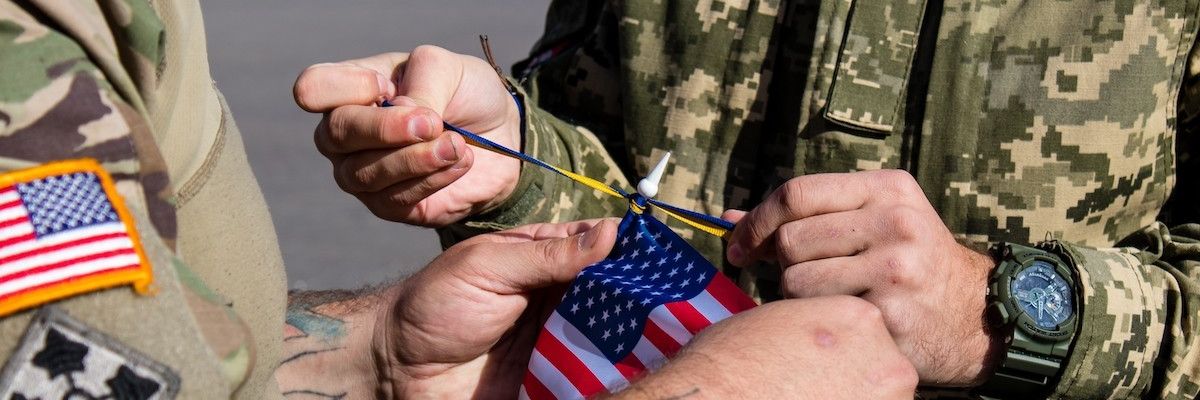A new Chicago Council on Global Affairs poll finds that 63% of Americans support continued aid to Ukraine in its war against the Russian invasion, while 53% overall say it’s been “worth the cost.” Some 45% say it has not been worth the cost.
The new numbers represent a slight dip — 65% supported aid in November last year (down from 72% in July 2022). The biggest decline is coming from Republicans — no surprise there. According to the poll, 50% of Americans who identify as Republican support continued arms aid to Ukraine, a drop of 18 points since July last year, and a full 30 points from the beginning of the war in February 2022.
Meanwhile, Democratic support has remained steady at 77%, down just two points from July 2022.
On the issue of whether the support is “worth the cost,” the numbers are partisan mirror opposites. For Republicans, 38% say U.S. weapons support has been worth it, while 61% say no. For Democrats, 69% say yes, 29% say no.
Interestingly, strong majorities still say NATO (and consequently, U.S. troops) should get directly involved if a NATO country is attacked. According to the poll, roughly 64% say they would favor sending U.S. troops to fight if Russia attacked a NATO ally like Germany; while 57% said they would support the same if Russia attacked allies like Latvia or Lithuania.
As an alliance, by the way, NATO still enjoys a healthy support from both parties, with 77% saying the U.S. should maintain its support and commitment, only down from 81% last July.
- Do Americans support fighting in Ukraine? It depends how you ask ›
- Polls: Black Americans less inclined to support Ukraine if it leads to US war ›
- Poll: Americans support quick diplomatic end to war in Ukraine ›
















